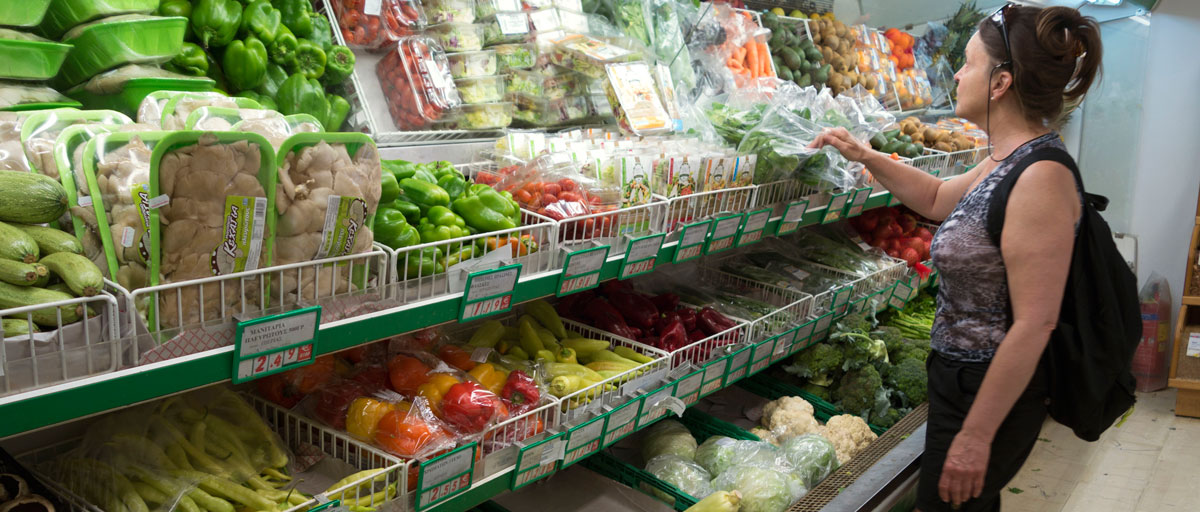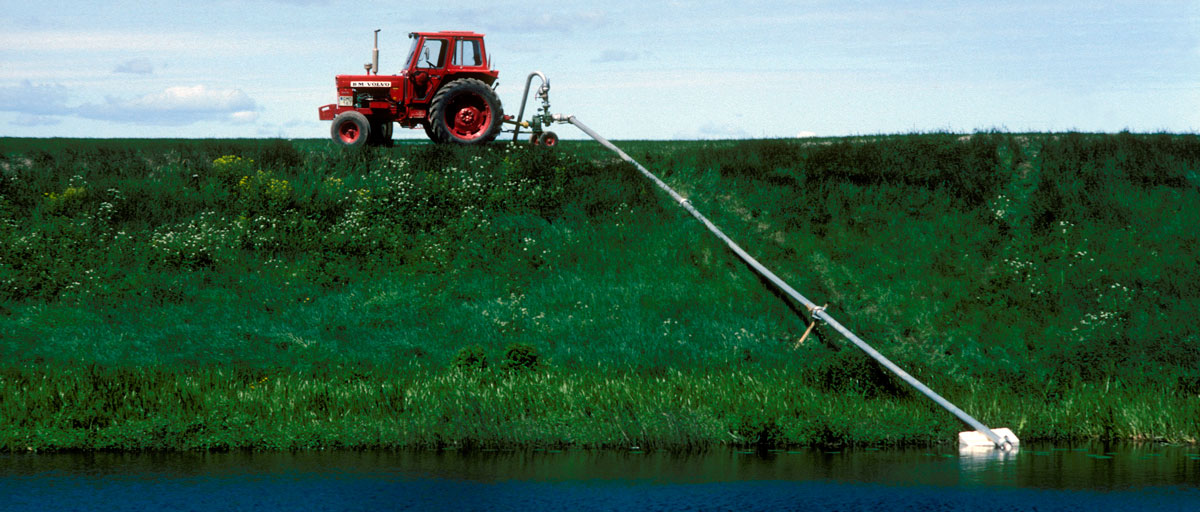
A new study argues that the complexity of the global food system makes it necessary to work in a transdisciplinary manner and go beyond simply identifying research questions. Photo: A. Maslennikov/Azote
Future Earth
The future of food
Sustainable solutions to future food challenges requires a transdisciplinary approach
- Study calls for a food system that recognises the socio-ecological and the socio-technical dimensions of food
- The study is a collective work of 28 young researchers representing five continents and diverse disciplines such as psychology, agronomy and sustainability science
- It explores how the UN programme Future Earth could serve as an inspiration for new research and collaborations to sustainably transform the global food system
The challenge of meeting the demands for food, water and energy for an increasingly global population is complex and span over multiple scales and sectors. This calls for a food system that recognises the socio-ecological and the socio-technical dimensions of food, argue centre researcher Timos Karpouzouglu and colleagues in a paper recently published in the Journal of Agriculture, Food Systems and Community Development.
The paper, a collective work of 28 young researchers representing five continents and diverse disciplines such as psychology, agronomy and sustainability science, explores how the UN programme Future Earth could serve as an inspiration for new research and collaborations to sustainably transform the global food system.
Come together
Future Earth builds on and brings together a number of already existing programmes for global environmental change such as the International Geosphere-Biosphere Programme (IGBP), the International Human Dimensions Programme (IHDP) and the Earth System Science Partnership (ESSP). The programme is designed to engage researchers from different disciplines and foster new forms of collaboration, while also include actors from outside the research community. Future Earth is also an important platform for tackling future sustainability challenges more explicit.
Two of the crosscutting approaches in the Future Earth agenda have been identified as crucial for advancing food system research. The first is to co-design the research agenda with stakeholders from outside of research, and with researchers from different disciplines. In other words, engage in transdisciplinarity. The second is working with innovative communication methods to increase the impact of the research.
Time to encourage transdisciplinarity
The authors argue that the complexity of the global food system makes it necessary to work in a transdisciplinary manner. This means going beyond simply identifying research questions and bringing researchers together to collaborate.
"In order for new initiatives such as Future Earth to have a more meaningful impact there needs to be increased institutional support behind them, and clear incentive mechanisms, such as funding support, to encourage more early career researchers to participate in more actively than what has been the case in the past," Dr Timos Karpouzouglou says.
Increasingly disenchanted young researchers and scholars are reporting that that their departments are not encouraging transdisciplinarity enough, focusing instead on publishing and teaching kept strictly within the core disciplines. Transdisciplinary research was generally perceived not to be a smart career move either. Future Earth should have a clear agenda and programme of activities that could help address this.
"The idea behind Future Earth is to provide a platform for consolidation of knowledge that is needed for a transition to global sustainability. We further wanted to argue that a food systems approach, exploring complexities of both emerging consumption and production patterns in developing and developed regions of the world should be at the top of the Future Earth agenda," says Karpouzouglou.
Setting the agenda
The article, which was based on a workshop organised by the International Social Science Council for the 28 young researchers, was the first step towards formulating a research agenda that could tackle the challenges that the future food system faces.
In the article the authors conclude that "In order to reach further understanding about the future of food we need to collaborate across disciplines as well as between different geographical areas. This calls for a platform where this type of collaboration is possible and facilitated. Future Earth can play an important role in establishing such processes."
citation
Rivera-Ferre, M. G., L. Pereira, T. Karpouzoglou, K. A. Nicholas, S. Onzere, W. Waterlander, F. Mahomoodally, A. Vrieling, F. D. Babalola, C. C. Ummenhofer, A. Dogra, A. de Conti, S. Baldermann, C. Evoh, S. Bollmohr. 2013. A vision for transdisciplinarity in Future Earth: Perspectives from young researchers. Journal of Agriculture, Food Systems, and Community Development, 3:249-260
Timos Karpouzoglou is a post doctoral researcher at the centre. His research draws upon a wide range of literatures including Science and Technology Studies (STS), resilience, policy analysis, and development studies. Timos focuses on understanding complex dynamic systems with an applied angle.







